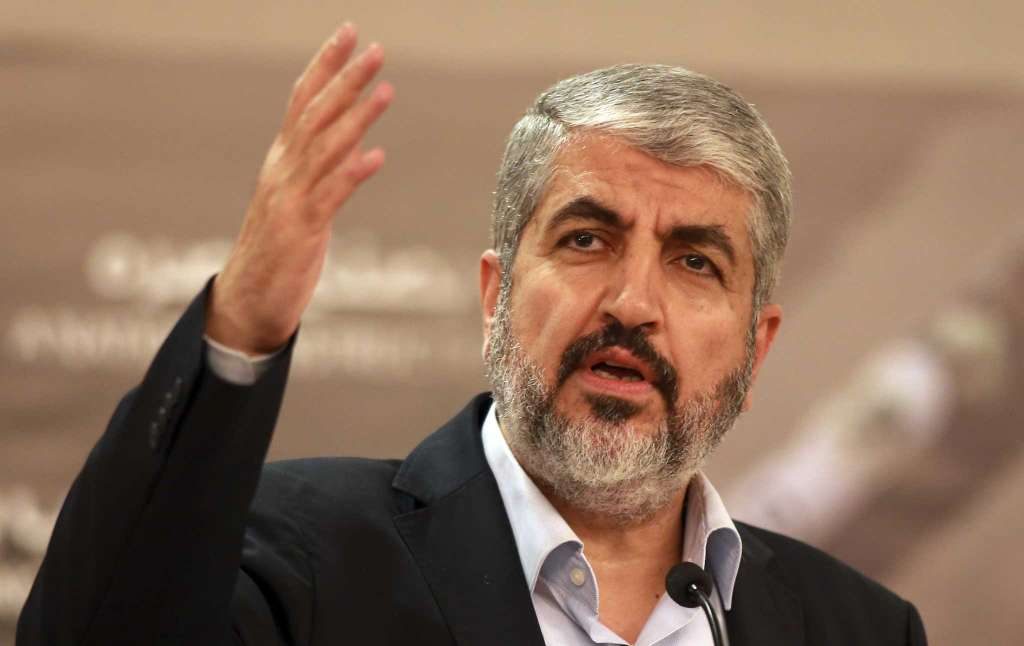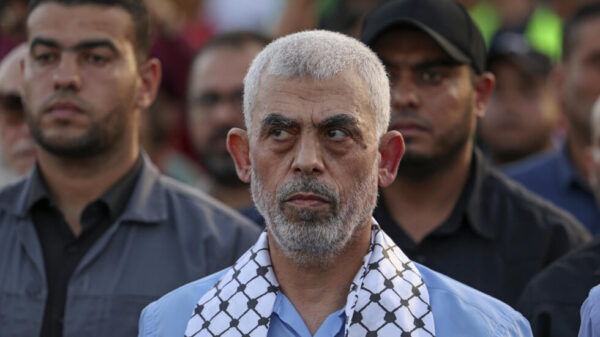File : Combined portraits of Key figures within the Hamas organization. Clockwise top left: Marwan Issa; Khaled Meshaal; Mahmoud Zahar; Yehiya Sinwar; Ismail Haniyeh; Mohammed Deif)
The militant Palestinian group Hamas has a history of swift and smooth replacement of fallen leaders killed in Israeli airstrikes.
Ismail Haniyeh’s assassination in the Iranian capital early Wednesday comes at a time when Hamas is under extreme pressure since the war in Gaza started nearly 10 months ago following the group’s attack on southern Israel.
“We are not discussing this matter now,” a Hamas official told The Associated Press, on condition of anonymity in line with regulations, when asked about the process to replace Haniyeh.
Haniyeh headed the group’s political bureau until his death. His deputy was Saleh Arouri, who was killed in an Israeli strike in Beirut in January and would have been the automatic replacement. Arouri’s post remained empty since his death.
The group’s Shura council, the main consultative body, is now expected to meet soon, likely after Haniyeh’s funeral in Qatar, to name a new successor. The council’s membership is kept secret but represents regional chapters of the group, in Gaza, the West Bank and diaspora and those imprisoned.

Zaher Jabarin, one of Haniyeh’s deputies
One of Haniyeh’s deputies was Zaher Jabarin, who has been described as the group’s chief executive officer because of the important role he plays in managing the group’s finances, and with that, his good offices with Iran.
Hani al-Masri, an expert on Palestinian organizations, said the choice is now likely between Khaled Mashaal, a veteran Hamas official and former leader, and Khalil al-Hayyah, a powerful figure within Hamas who was close to Haniyeh.
“It will not be easy,” said al-Masri, who also heads the Palestinian Center for Policy and Research and Strategic Studies.
Hamas’ new political leader will have to decide on whether to continue the military option, and become essentially a guerrilla and underground group, or choose a leader that can offer political compromises — an unlikely option at this stage.

Khaled Mashaal former Hamas political leader
Mashaal has political and diplomatic experience, but his relations with Iran, Syria and Hezbollah have soured over his support for Arab protests in 2011. When he was in Lebanon in 2021, Hezbollah leaders reportedly refused to meet with him. But Mashaal has good relations with Turkey and Qatar and is considered a more moderate figure who headed the group until 2017. Palestinian leader Mahmoud Abbas called him on Saturday to offer his condolences for the killing of Haniyeh.

Yehya Sinwar
Yehya Sinwar, the powerful Hamas figure leading the war in Gaza, is at the opposite end of that spectrum and is unlikely to support Mashaal’s leadership.
Al-Hayyah is considered close to Haniyeh, a prominent leader living in exile and originally from Gaza, with important international connections and good relations with the military wing as well as with Iran and Turkey.

Khalil al-Hayyah, a powerful figure within Hamas who was close to Haniyeh.
After years of cold relations with the Iran-led “axis of resistance” over Hamas’s backing the opposition against Syrian President Bashar Assad during Syria’s conflict that began in March 2011, Hamas began mending its relations with Iran and reconciled with Assad.
Al-Hayyah headed a delegation that went to Syria in 2022 and met Assad. Al-Hayyah also has good relations with Iran, Turkey and Hezbollah.
“He is like Haniyeh, who was balanced and flexible and both sides didn’t see his leadership as problematic,” al-Masri said.
The role of the group’s leader is important in maintaining relations with Hamas’ allies outside the Palestinian territories and the choice is likely to be influenced by the group’s choices in the coming days.
Al-Masri said any choice will have to be temporary until elections in the political bureau which were supposed to take place this year but have been derailed by the war.
The Hamas leadership meeting may also be complicated by efforts to reach Sinwar, who remains influential and will be consulted on the choice.
With cease-fire talks faltering, Israel’s strategy so far appeared to have left the group with a few options now: surrender or continue war.
A third possible contender, said al-Masri, is Nizar Abu Ramadan, who had challenged Sinwar for the role of Gaza chief, and is considered close to Mashaal.
The war in Gaza started on Oct.7 after the Hamas attack that killed some 1,200 people. The group also took 250 others hostage. Israel’s retaliatory operation has obliterated entire neighborhoods in Gaza and forced some 80% of the population to flee their homes. Over 39,000 Palestinians have been killed, according to Gaza’s Health Ministry which doesn’t distinguish between civilians and combatants in its count.


Leave a Reply
You must be logged in to post a comment.